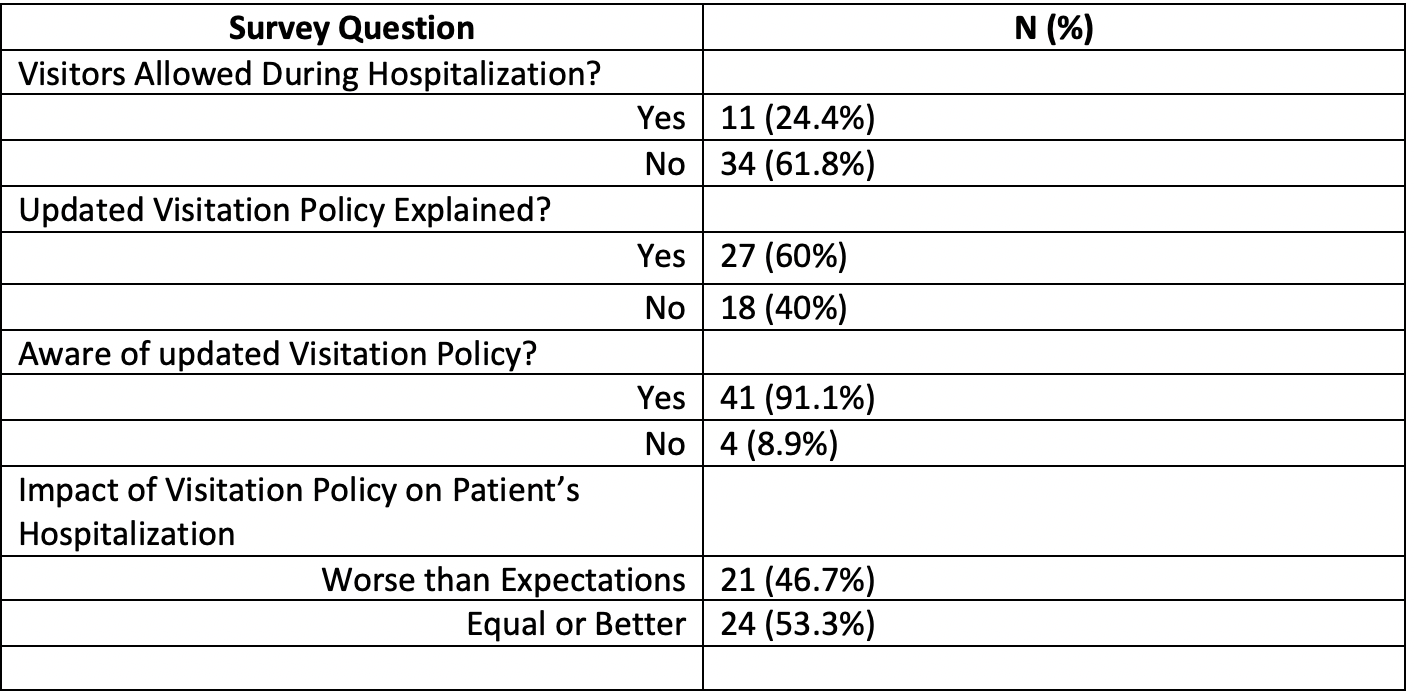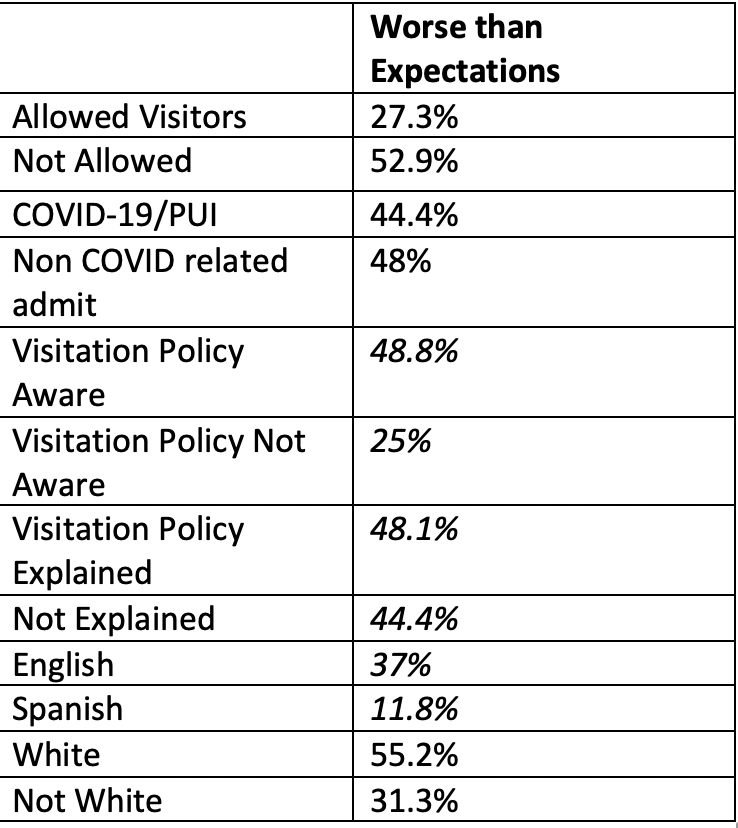Background: Patient and family experience have become increasingly important to the hospital community, whereby exceptional patient and family experience is the common ground for all six aims of quality care as defined by the Institute of Medicine in Crossing the Quality Chasm — care that is patient centered, safe, effective, timely, efficient, and equitable (1). With rising COVID-19 infection rates, hospitals across the country enforced visitation restrictions in line with CDC recommendations to mitigate spread within hospitals and preserve personal protective equipment. These restrictions limited caregiver visits to the hospital for limited circumstances such as end-of-life and altered mental status. The impact of these restrictions on caregiver perspective of patient experience is unknown. We conducted a survey of caregivers of patients hospitalized during the pandemic to evaluate their perspective on restricted visitation of their loved one.
Methods: A four-item questionnaire was administered by phone to caregivers of randomly selected adult patients discharged between 3/15/2020 and 8/15/2020 from the Hospital Medicine service. Questions included: number of visitors allowed, communication about and awareness of the policy, and impact of the visitation policy on the patient’s hospital-stay. Demographic information, including COVID-19 status was obtained through review of electronic health record. Descriptive statistics and 2-sided χ2 analyses were performed.The study was IRB approved.
Results: 121 total patients were surveyed, of which 45 caregivers completed the surveys. Of caregivers, 40% identified as spouse, 28.9% as child, and rest included parent, significant other and “other”. 24.4% of caregivers were allowed to visit the patient during hospitalization. 91.1% of caregivers were aware of the updated visitation policy, and 60% recalled that it was explained to them. 46.7% of caregivers reported that the restricted visitation policy’s impact on the patient’s hospitalization was worse than expected. Comparison of caregivers who were allowed to visit versus those who were not did show significant differences in perception of impact. There were no significant differences between Spanish vs. English speaking, white vs non-white and COVID-19/suspected-COVID vs non-COVID admission. Recall regarding explanation of policy did not affect perceived impact of visitation policy. Agreement between patient perceived impact and caregiver perceived impact was moderate (kappa=0.41).
Conclusions: Restricted visitation policies related to the COVID-19 pandemic have disrupted the traditional experience of hospitalization, which generally reinforces patient and family centered care at the bed-side. Our data suggests that a significant portion of caregivers had concerns regarding the impact of the restricted visitation policy on their loved one. Considering ongoing rise of cases and need to maintain these restrictions, hospitals should consider innovative strategies to involve family members to alleviate the impact of not allowing them at the bedside.


